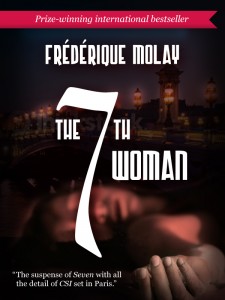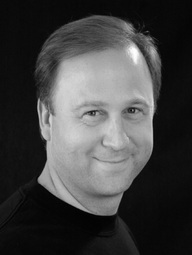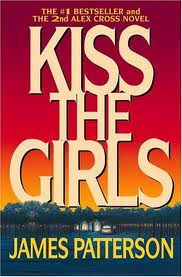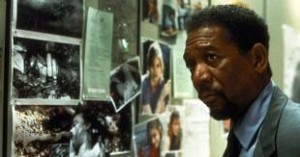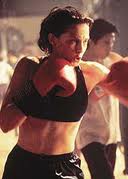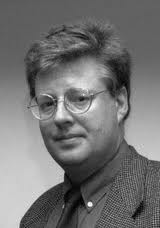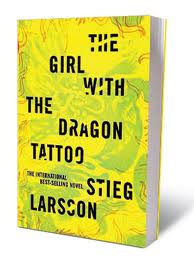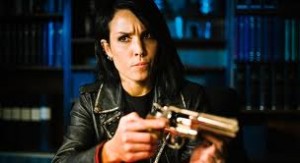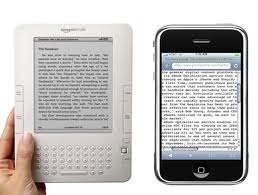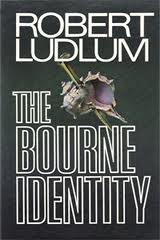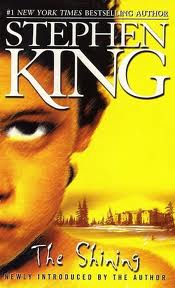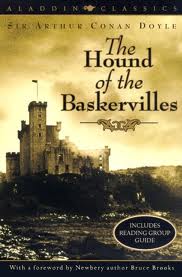Frédérique Molay is the author of THE 7TH WOMAN, which is the first in an ongoing series of edge-of-your-seat police procedurals set in Paris focusing on the city’s elite Criminal Investigation Division and its Chief of Police, Nico Sirsky. This book won France’s most prestigious crime fiction award, was named Best Crime Fiction Novel of the Year, and is already an international bestseller. It was published in English by the digital-first publisher Le French Book.
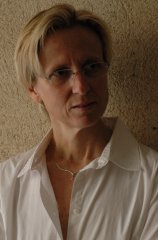 ME: When did you first know you wanted to be a writer, and what prompted you to attempt your first novel at age 11? Can you give us a quick summary of the story? (Also, I’d love to show a picture of you at that age.)
ME: When did you first know you wanted to be a writer, and what prompted you to attempt your first novel at age 11? Can you give us a quick summary of the story? (Also, I’d love to show a picture of you at that age.)
FM: When I learned to read, it was like a revelation. It was incredible to discover that letters formed words, then sentences and, finally, stories. Stories that take you into a parallel world, a fourth dimension, a land of dreams–and nightmares.
Very quickly, I became intrigued by the mechanisms of suspense that keep readers turning the pages of a book. So, I made a wish: to discover this power granted to novelists so that I, too, could make others feel such strong emotions. To do that, I wrote my first novel when I was eleven years old. It was a story about a child-killing cat. (Okay, that’s scary. Sounds like the kind of thing Stephen King would have started out writing.)
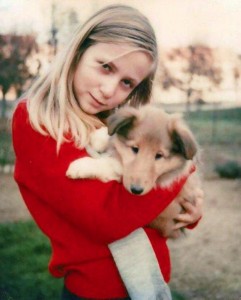 (Frédérique, at 11…obviously a dog-lover)
(Frédérique, at 11…obviously a dog-lover)
ME: You have said that you think writers “are actually made to write in one genre or another” . . . that the writer has to find what he/she is made for and accept it. How did you finally know crime fiction best fits you, and what in your particular brand of crime fiction echoes who you are?
FM: There are so many books I would have loved to write, magnificent books at that, but I quickly realized that I was made to write crime fiction. This is perhaps because I’m really two different people. One is Cartesian, realistic, reasonable, ordered, the filing kind . . . and the other is a dreamer, the story-telling kind, who feels the need to flee, to escape and to forget.
Perhaps also I feel the need to establish a special bond with the reader that you find in the interactive game offered by the mystery genre. Perhaps it is because I am attracted to the fight between good and evil, and like the search for truth, as well. In 1791, the French philosopher Nicolas de Condorcet said, “The friends of truth are those who are seeking it, not those who boast about having found it.”
And also, perhaps I am afraid of death and I am trying to come to grips with that. What could be more reassuring than discovering a motive and a culprit, a good explanation for a death?
(So many possibilities. Each one sounds reasonable.)
ME: What was your childhood like, and did anything in it lead to your interest in crime fighting and justice?
FM: I had a happy childhood; bad luck came to me later on. My paternal grandfather was a Voltaire-style humanist, as was my father, and I always tried to understand rather than judge the things that happened to me. Except that in my stories, good always wins out over evil. I should also mention that I have always loved American movies, and particularly the Marvel universe of superheroes. The ups and downs of life and human cruelty will never make me forget my thirst for ideals and justice.
ME: Why did you go into politics, and did that motivation have anything in common with why you write?
FM: Because of my ideals. I wanted to help people and to participate in local development. Building projects, writing speeches for a commission chairman at the National Assembly or for a government minister certainly contributed greatly to my understanding of how investigations work and the attention to detail that is involved. In the end, politics scuffed up my idealism, (Why am I not surprised by that?) but my characters bolster it.
ME: I’m very interested in the minds of writers. You’ve said, “For me, writing is an outlet, a way to fulfill a need to live in a parallel life.” Does everyone have that need, or just writers, and why?
FM: I imagine that anyone who gives themselves over to an art form, whatever it may be, does so out of passion, but also because of some inner necessity, some need to externalize emotions and feelings, driven by the desire to share and impact others, and to be loved in return.
As Hermann Hesse said in The Journey to the East, “My happiness did indeed arise from the same secret as the happiness in dreams; it arose from the freedom to experience everything imaginable simultaneously, to exchange outward and inward easily, to move Time and Space about like scenes in a theatre.”
(That’s an excellent summation of the writing process!)
ME: You’ve also said, “It is a form of self psychoanalysis, but you have to remain Zen.” Could you elaborate on that? What exactly did you mean?
FM: In Dune, Frank Herbert asks, “Do you wrestle with dreams? Do you contend with shadows?” I prefer to wrestle with dreams. That is most probably my way of escaping the daily grind, of inventing a world where, although there is still crime, the good guys never lose sight of what is essential. Ultimately, my main goal, though, is to give readers strong emotions, an agreeable moment during which they can forget whatever my be bothering them.
ME: Why do you think people enjoy reading suspense?
FM: Oh, that magical power we talked about earlier in this interview. Writers of suspense are sorcerers who make readers keep turning the pages, who drag the readers into a story and knowing the end becomes the sole focus. Who killed and why? How can you stop before you know? Watch David Fincher’s The Game with the so-attractive Michael Douglas (I told you I love American movies). It has an excellent plot that ends in a kind of apotheosis. Like a good mystery should.
(Thanks for the suggestion :D)
ME: Which writers or philosophers have influenced you the most and how?
FM: Who has influenced me? Enid Blyton was a big part of my childhood, then came Stephen King (Aha! I thought so), Mary Higgins Clark, Patricia Cornwell, James Patterson, Michael Connelly and so many others. I am a fan of fantasy and crime fiction, but I often dive into more traditional literature, and read it with great pleasure. I love so many writers, it would be hard to mention them all here. What is interesting is to see the historical and philosophical threads that connect these authors.
For example, in Planet of the Apes, which marked me deeply, the author Pierre Boulle’s commentary on human society, mockery of those refusing to have critical thinking, satire of human pride, and his humor were all inspired by the French philosopher Voltaire’s short story Micromégas, a philosophical tale of an extraordinary voyage, representative of the Age of Enlightenment and symbolizing the philosophical notion of relativity. (Brave New World, by Aldous Huxley, was also inspired by Voltaire’s Candide.)
ME: I understand you take a fairly structured approach to writing. Could you describe your process in writing a novel from start to finish? Also, what are you working on now?
FM: A plot revolving around a police investigation is necessarily based on a logical approach: you have to plant the clues, give them meaning and lead the reader to the culprit. There is, of course, still a certain amount of room for the imagination. In THE 7TH WOMAN, I didn’t know who the killer was when I began the novel. It became obvious to me who it was as the story took shape. On the other hand, other stories require knowing who killed and how. But in any case, the characters sometimes reveal themselves to be different from how you imagine them at the beginning. They really do take on a life of their own.
I am also regularly in contact with police officers, medical examiners and judges in order to be able to describe what they do in a realistic way.
Currently, I am working on the fourth book in the Nico Sirsky, Chief of Police, series. It renews with the kind of harshness found in THE 7TH WOMAN, where my hero finds himself facing uncertainty in his private life that makes him both darker and more fragile. I’ll say no more for now. (We understand. :D)
ME: Finally, always being interested in where writers create their stories, I’d love it if you would describe your writing space in the voice of your main character–police inspector Nico Sirsky–as if he were conducting an investigation there. (It would also be wonderful to post a picture of your writing space.)
Nico climbed the stairs to the mezzanine that overlooked the living room. Piles of magazines and books surrounded two low chairs and a tiny coffee table. His heart beat faster as he cracked open the door leading to the devil’s lair: his creator’s office. What, or who, was he expecting to meet? What did it matter, anyway? What could possibly be worse than learning that he only lived through a woman’s imagination? That he was just a name on a book cover? That he would die the day his readers turned away from him, with complete impunity? A fate as terrible as getting shot in the heart as you turn a street corner.
The woman was sitting in a black leather chair, behind a long desk made of light-colored wood. She was focused on her computer, lost in a parallel universe, the one she built for him every day. All around her were white walls, with two roof windows letting the light flood into the room. There were paintings, and pictures of children, probably hers. There was one of her with Mary Higgins Clark, when she was younger; a good luck picture. There were other objects, Mother’s Day gifts and travel souvenirs, some look like they are from Russia, where both their ancestors came from. A Plexiglas tower overflowed with CDs. She liked music just like he did, played in the background, or blasting through the apartment. In the end, Nico found the atmosphere to be studious and calm, nothing at all like this woman’s blood-filled imagination with the crimes she set out on his path and made his duty to resolve. He observed her for a minute with a knot in his throat. Her face stiffened and then relaxed incessantly, while her fingers tapped away at the keyboard, nothing gentle at all in her approach. He sat down on a bench, slowly to keep from rustling the papers laid out there, hand-written notes and printed documents for her novels.
His lips formed the words, “Thank you.”
She straightened up, and seemed to look in his direction.
“No, it is I who thank you,” she whispers.
Nico wondered which of the two breathed life into the other, dazed by the very question.
(Formidable! E merci!)
Come back next Wednesday for my interview with Craig Everett, author of the middle grade financial literacy thriller, Toby Gold and the Secret Fortune.
Originally posted 2013-02-06 06:00:09.

